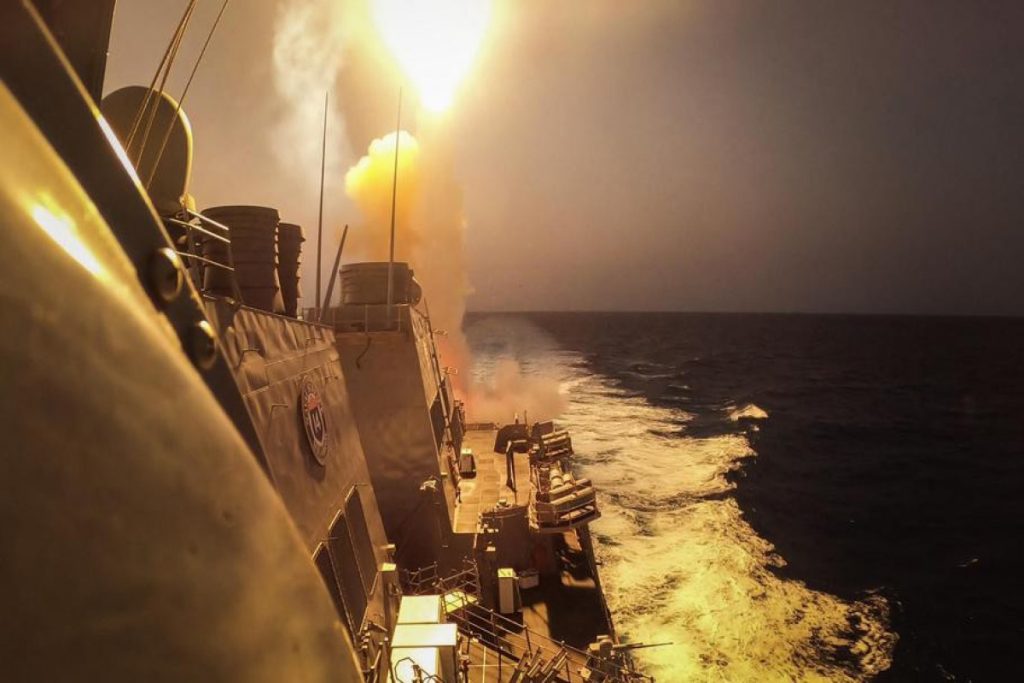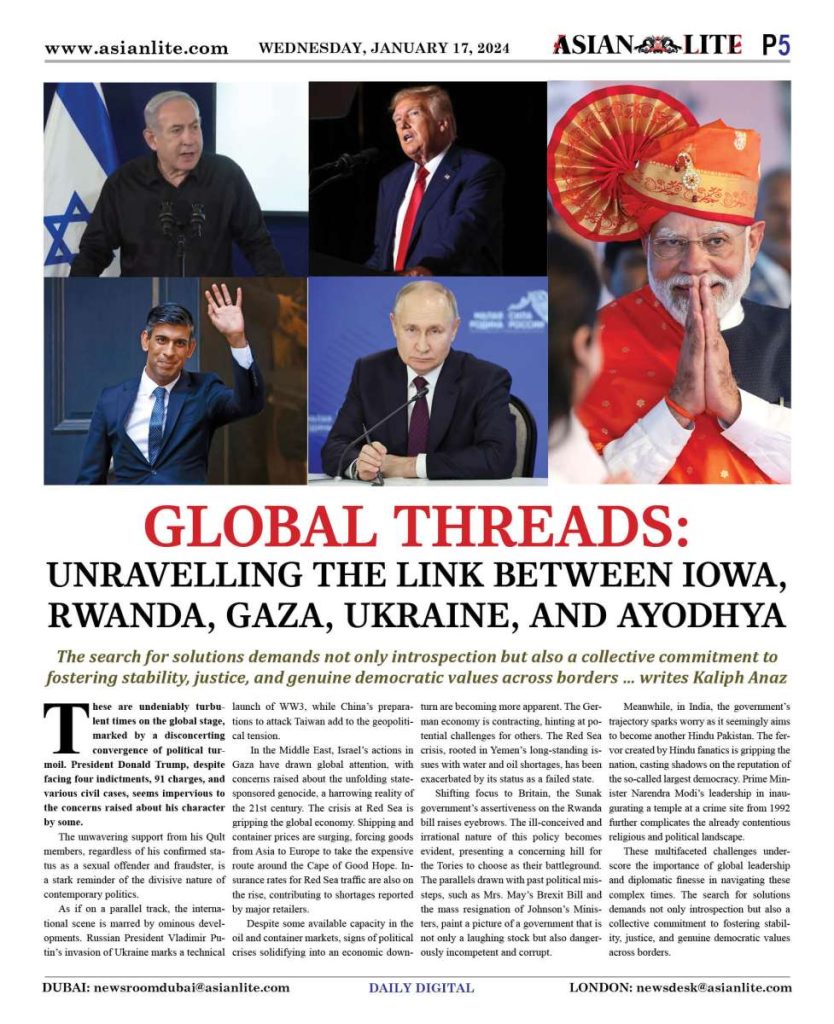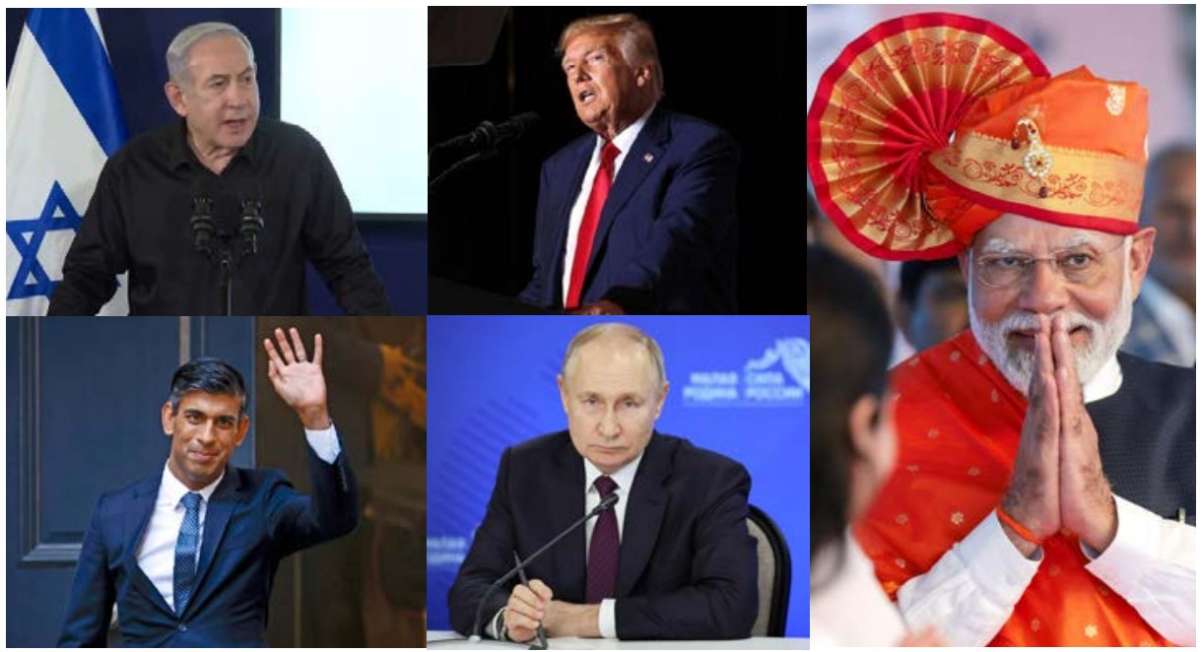The search for solutions demands not only introspection but also a collective commitment to fostering stability, justice, and genuine democratic values across borders … writes Kaliph Anaz
These are undeniably turbulent times on the global stage, marked by a disconcerting convergence of political turmoil. President Donald Trump, despite facing four indictments, 91 charges, and various civil cases, seems impervious to the concerns raised about his character by some. The unwavering support from his Qult members, regardless of his confirmed status as a sexual offender and fraudster, is a stark reminder of the divisive nature of contemporary politics.
As if on a parallel track, the international scene is marred by ominous developments. Russian President Vladimir Putin’s invasion of Ukraine marks a technical launch of WW3, while China’s preparations to attack Taiwan add to the geopolitical tension.
In the Middle East, Israel’s actions in Gaza have drawn global attention, with concerns raised about the unfolding state-sponsored genocide, a harrowing reality of the 21st century. The crisis at Red Sea is gripping the global economy. Shipping and container prices are surging, forcing goods from Asia to Europe to take the expensive route around the Cape of Good Hope. Insurance rates for Red Sea traffic are also on the rise, contributing to shortages reported by major retailers.
Despite some available capacity in the oil and container markets, signs of political crises solidifying into an economic downturn are becoming more apparent. The German economy is contracting, hinting at potential challenges for others. The Red Sea crisis, rooted in Yemen’s long-standing issues with water and oil shortages, has been exacerbated by its status as a failed state.

Shifting focus to Britain, the Sunak government’s assertiveness on the Rwanda bill raises eyebrows. The ill-conceived and irrational nature of this policy becomes evident, presenting a concerning hill for the Tories to choose as their battleground. The parallels drawn with past political missteps, such as Mrs. May’s Brexit Bill and the mass resignation of Johnson’s Ministers, paint a picture of a government that is not only a laughing stock but also dangerously incompetent and corrupt.
Meanwhile, in India, the government’s trajectory sparks worry as it seemingly aims to become another Hindu Pakistan. The fervor created by Hindu fanatics is gripping the nation, casting shadows on the reputation of the so-called largest democracy. Prime Minister Narendra Modi’s leadership in inaugurating a temple at a crime site from 1992 further complicates the already contentious religious and political landscape.
These multifaceted challenges underscore the importance of global leadership and diplomatic finesse in navigating these complex times. The search for solutions demands not only introspection but also a collective commitment to fostering stability, justice, and genuine democratic values across borders.

ALSO READ: UK Lawmakers Pass Rwanda Bill as Part of Immigration Plan

Leave a Reply